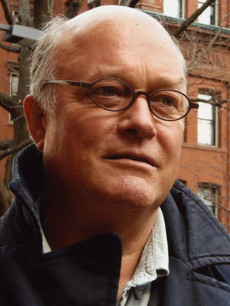Bertram Verhaag
Laureate

DENKmal-Film Verhaag
Director and Producer
Germany
Biodiversity / Nature Conservation
B.A.U.M. Umweltpreis, 2013
Green Me Film Festival Preis für besten Food Film, EKOFILM Festival 2014 Preis für Inspiration für Der Bauer und sein Prinz, Ökofilmtour der Horst-Stern-Preis für Der Bauer und sein Prinz, Lammsbräu
Bertram Verhaag was born in Sosnowitz, Upper Silesia (now part of Poland). He studied sociology and economics. After three years of freelance work at the department of urban development in Munich, he decided to enrol at the city’s University of Television and Film. In 1976, together with Claus Strigel, he established DENKmal, a film production company. For over 30 years, Bertram Verhaag has been making documentaries through his own production company, DENKmal-Film. Those three decades have seen the production of around 140 films, including nine feature-length documentaries. As a producer, author and director, Verhaag has made a long-term commitment to focus exclusively on political, environmental and social issues. Today, he remains as determined, persistent and tenacious as ever. Verhaag is dedicated to making films which bolster democracy and educate people – in the broadest possible sense. He aims to motivate people through his films by focusing on characters who grapple with important social questions. He believes nobody should resign themselves to the idea that “there’s nothing I can do about it, anyway”! In addition to 14 international awards, one of his best-known films – Blue Eyed (1996, 80 min.), about American teacher and anti-racism activist Jane Elliott – earned a nomination from the Academy of Motion Picture Arts and Sciences in Los Angeles as “One Of The Most Outstanding Documentaries Of The Year 1996”. Blue Eyed exemplifies the longevity of Verhaag’s work: twenty years since its release, the film has lost none of its relevance. It is still used by anti-racism educators all over the world, and has been sold in 30 countries. During the 1980s, plans for a nuclear reprocessing plant in the nearby Bavarian town of Wackersdorf motivated Bertram Verhaag to make three anti-nuclear films. The best-known of these is Nuclear Split. This title refers not only to the splitting of an atom’s nucleus, but also to the splitting of the population into proponents and opponents of the nuclear facility. Within only a few months of its release, Verhaag’s film Life Running out of Control (2004, 95 min.) became Germany’s go-to work on genetic engineering. The film takes the viewer on a trip around the globe. Along the way, it presents compelling evidence that genetic engineering is not, as its proponents claim, the logical “next step” for conventional agriculture, but rather a radical departure: a high-risk undertaking totally lacking in democratic legitimacy. For almost ten years, Life Running Out of Control has been a DVD blockbuster. It is used by individuals, schools, youth organisations, NGOs and political parties to inform and motivate viewers. Unfortunately, the film has lost none of its pertinence: in fact, it is now more relevant than ever. Verhaag’s most important film on the subject of genetic engineering – Scientists Under Attack – genetic engineering in the magnetic field of money (2010, 88 min.) – premiered to great acclaim in German and Austrian cinemas in 2011. Scientists Under Attack is a documentary thriller on genetic engineering and the independence of science. It illustrates the fate of those few scientists – such as Árpád Pusztai and Ignacio Chapela – who undertake independent research in the field of genetic engineering and, after publishing articles which criticise the technology, find themselves punished mercilessly through character assassination and the withdrawal of research funding. Pusztai and Chapela are just two of the many respected researchers whose careers have been ruined in this way. Statements from scientists themselves suggest that 95% of those conducting research in the field of genetic engineering are funded to do so by industry. Only 5% are independent. This situation is clearly incompatible with principles of freedom of thought. The question is: can we, the public, still trust our scientists? From the outset, Verhaag’s approach has been to make multiple films on any given topic: nuclear energy and democracy (5 films); racism (2 films); genetic engineering (9 films); sustainable agriculture (9 films). His works helped to close the reprocessing plant at Wackersdorf and bring us closer to ending our use of nuclear energy. His films on genetic engineering have moved countless people to engage with, and resist, this deeply flawed technology. Life Running Out of Control served as a catalyst for the establishment of citizens’ movement “Civil Courage” which now has a near-nationwide presence in Germany. It was and remains the foundation and cornerstone of Germany’s network of GM-free regions, which now cover almost the entire country. Verhaag’s films on sustainable agriculture continue to motivate ever more people to make the transition to organic food and to reject industrially produced foodstuffs. Over the last ten years, Bertram Verhaag has made nine films exploring aspects of genetic engineering. The tenth film, Code of Survival – or the End of Genetic Engineering, is currently in production. In post-screening discussions, Verhaag is repeatedly confronted with an argument beloved of genetic engineering advocates: “The global population will soon reach 9 billion. Genetic engineering is the only way we can feed the world”. In Code of Survival, Verhaag thoroughly discredits this misconception. On the one hand, he illustrates the devastating impacts of the agricultural poisons upon which genetic engineering depends, and which are now detectable in almost every one of us – even in countries which do not cultivate genetically modified plants. On the other hand, he highlights the alternatives: projects which have, for decades, produced high-quality food in sufficient quantities, which do not use genetic engineering nor agricultural poisons, do not destroy the soil and – at the same time – generate income for producers. However, Verhaag realises that focusing only on the grim topic of genetic engineering would leave viewers frustrated and despondent. So his films also explore the other side of the story by portraying people who have consciously chosen to produce food in an ecological, holistic and sustainable way. His aim in this is to encourage viewers not only to think, but to act. Whether coincidence or otherwise, Verhaag’s films have often portrayed people who went on to win the “Alternative Nobel Prize”: Percy Schmeiser in Percy Schmeiser – David versus Monsanto, Hans Peter Dürr in Living on the Borders, Vandana Shiva in Seeds and Seed Multinationals and Ibrahim Abouleish in Sekem - Born of the Sun. The film Der Bauer der das Gras wachsen hört (The Farmer Who Hears the Grass Growing) has so far won nine awards, including “Best Ecological Film” at the 2010 Greenscreen Festival. Other films, including The Agro Rebel, The Farmer and the Earthworms and The Beloved Cattle, have already achieved cult status and are regularly screened as examples of organic farming. Verhaag’s latest film, The Farmer and his Prince, about Prince Charles’ organic farm and its charismatic manager, David Wilson, premiered in November 2014 and has since enjoyed a very successful theatrical run. Seven months and over 30,000 viewers later, the film is still being screened in cinemas in 10 to 20 German cities every week – an outstanding result for a documentary. Critics and viewers alike have heaped praise on the film. DENKmal Film’s productions serve society as a whole. DENKmal is, in the truest sense, a “social business”. As a filmmaker, Bertram Verhaag sees himself as an active participant in the movement towards more humanity, greater respect for nature and sustainability. He encourages his audience to think, to engage – and to act.

 EN
EN
